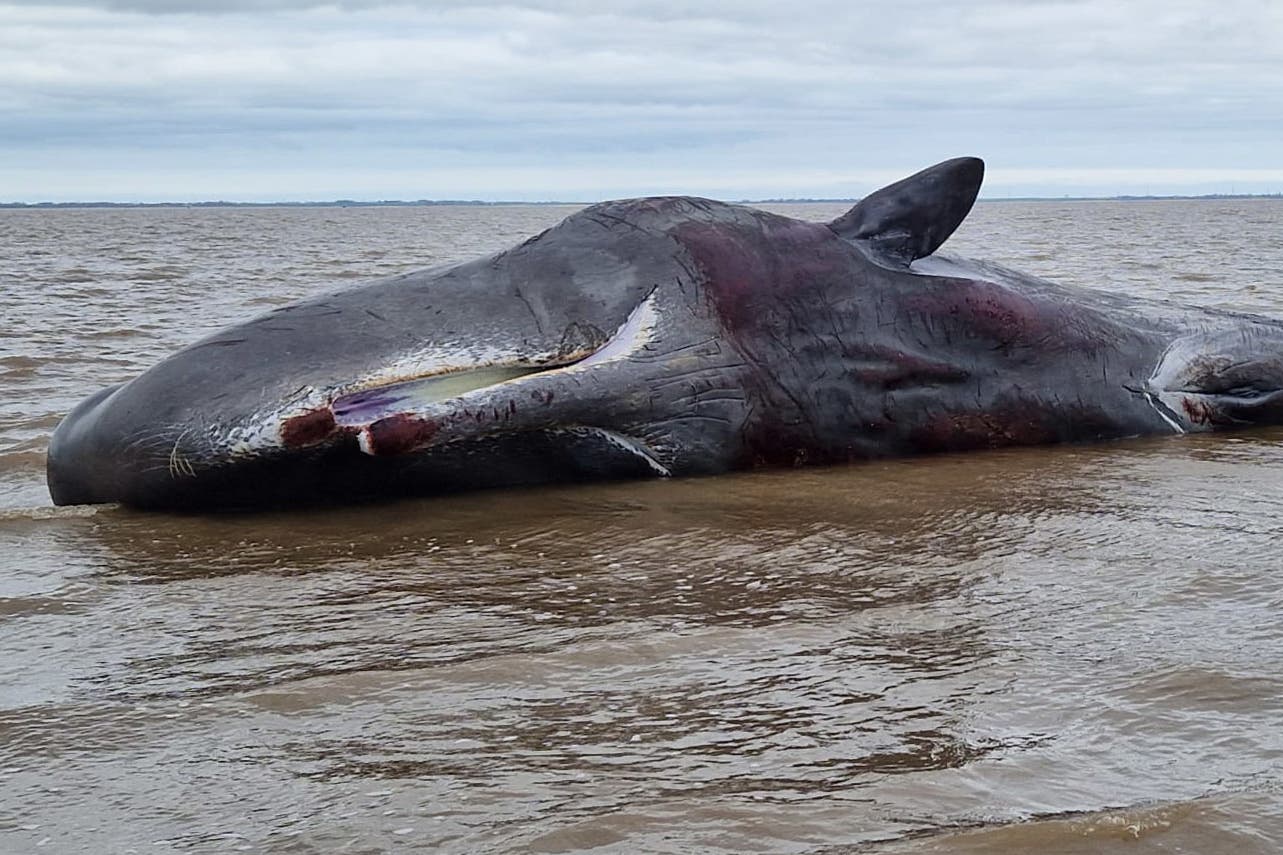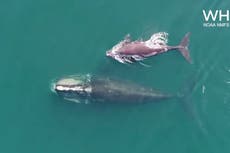Sperm whale feared dead after becoming stranded on UK beach
The creature was stranded on its side at Cleethorpes in Lincolnshire

A sperm whale is feared to have died after it washed up on the east coast of England in Lincolnshire.
British Divers Marine Life Rescue (BDMLR) was called at about 12.15pm on Good Friday to help with a “large stranded whale” on the beach at Cleethorpes, near Grimsby.
The marine mammal response charity said the whale had been spotted “upright in the water” at about midday, but by the time it reached the beach it was stranded on its side.
Photos on social media show the large whale protruding from shallow water just off the beach.
A BDMLR spokesperson said: “HM Coastguard and Cleethorpes beach safety team were able to get photographs to help us make a positive identification, and keep the public safe on what can be a dangerous area.
“Unfortunately, the tide was rising quickly and therefore there was no way for BDMLR medics to safely access the whale, and it was soon under the water.
“The beach safety team were able to show our medics CCTV footage of the whale before it became submerged, and it did appear to have passed away.”
The charity said it believes the whale was likely a male as “it is very uncommon for female sperm whales to be found this far north, the only recording of one in the UK being in 2016”.
They added: “Sperm whales are the largest toothed whale reaching up to 16 metres in length, and can hold their breath for up to 120 minutes while they dive for giant squid.”
It seems these animals end up outside their normal habitat in these relatively shallow waters where they struggle to feed and find their way back out, becoming malnourished and disorientated
The charity noted that “there have been a number of strandings on North Sea coasts over the years”.
The spokesperson added: “It seems these animals end up outside their normal habitat in these relatively shallow waters where they struggle to feed and find their way back out, becoming malnourished and disorientated.
“Unfortunately, this means by the time they strand, if alive, they are often in poor health.”
It said the Cetacean Stranding Investigation Programme (CSIP), which is funded by the Department for Environment, Food and Rural Affairs and the devolved administrations, has been informed of the incident.
CSIP’s website states it coordinates the “investigation of all whales, dolphins and porpoises (collectively known as cetaceans), marine turtles and basking sharks that strand around the UK coastline”.
The BDMLR spokesperson added: “Although the whale is likely to shift position over the next few hours, it is possible it will turn up again on the next low tide.
“It’s very important that people keep away from the body of any deceased marine mammal as the reason for it stranding is not known, and disease cannot be ruled out.”
A Maritime and Coastguard Agency spokesperson said they were made aware of the beached whale just after midday.
“Cleethorpes Coastguard rescue team were sent along with British Divers Marine Life Rescue. The whale re-floated on the incoming tide,” they added.
Cleethorpes Wildlife Rescue wrote on social media: “As we arrived British Divers Marine Life Rescue had just started to make way over to the whale and did not wish for assistance so our team stood down while they continued their work.
“Thank you to the volunteers who attended to help.”



Bookmark popover
Removed from bookmarks